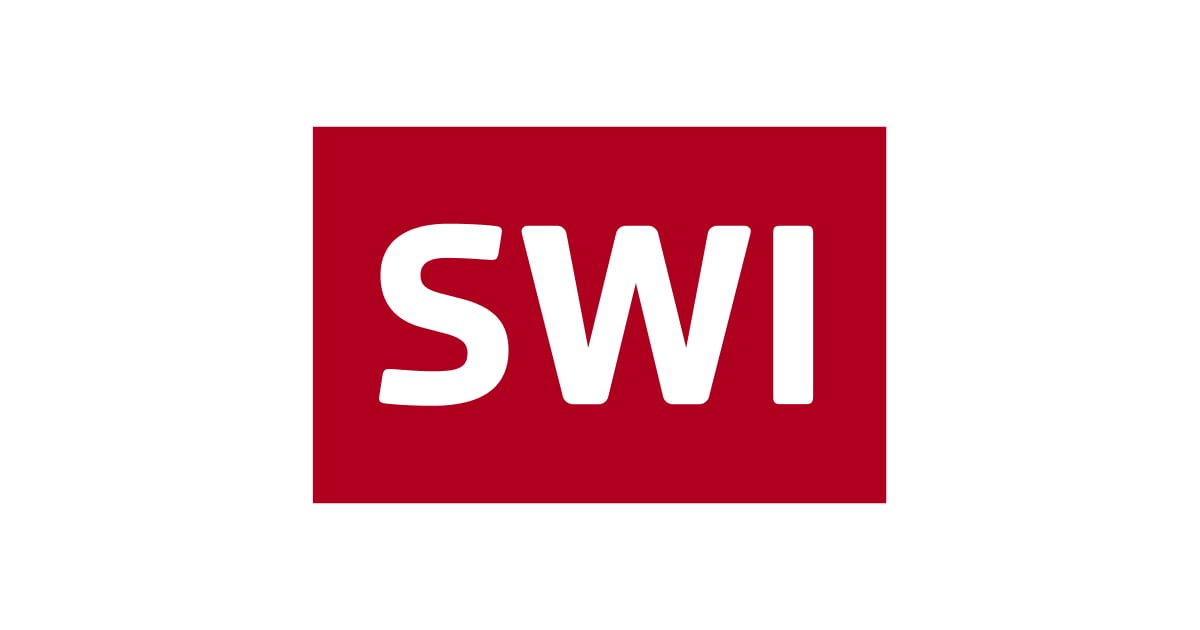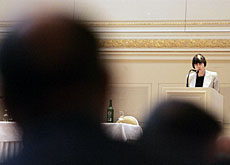Calmy-Rey becomes “people’s president”

Foreign Minister Micheline Calmy-Rey, who has been elected federal president for 2007, enjoys a large degree of popularity among the Swiss population.
Calmy-Rey regularly tops popularity polls for Swiss politicians. But her outspoken manner and policy decisions have also won her some enemies.
Calmy-Rey was appointed in a rare joint session of the two parliamentary chambers, the House of Representatives and the Senate.
The 61-year-old is expected to continue pushing Switzerland’s views in the world, engaging in efforts to bring about peace in troubled regions and enforcing the Geneva humanitarian conventions internationally.
The daughter of a train driver has come a long way since she ran a book distribution business in French-speaking Switzerland.
In 1979 she joined the centre-left Social Democratic Party of Geneva, which she later served as president for two terms.
As a cantonal parliamentarian she took an interest in public finance, and when she became a member of the cantonal government in 1998, she took over as head of the department of finance.
The next step in her career as a politician came in 2002 when the federal parliament elected her to the cabinet.
She took over the foreign ministry and has pursued an active policy marked by raising the profile of Swiss diplomacy and promoting international law, human rights and peace.
In 2003 Calmy-Rey became the first non-Korean government official to cross the four-kilometre-wide demilitarised zone between North and South Korea.
She has pushed several diplomatic initiatives: the Geneva Accord, an unofficial peace proposal aimed at solving the Israeli-Palestinian conflict; the United Nations Human Rights Council; the Red Crystal symbol of the International Committee of the Red Cross, and her efforts to secure independence for Kosovo.
Active neutrality
“Public diplomacy involves replacing the usual tact that permeates negotiations between governments of international treaties with a transparent method of getting one’s position across by exerting pressure,” she said in a speech 100 days after entering government.
This approach enjoys far from unanimous support. Critics accused her of violating Swiss neutrality when she called for a ceasefire between Israel and Islamic Hezbollah militants in Lebanon. She had said the Israeli operations were “disproportionate compared with their aims”.
Calmy-Rey retorted that being the depositary state of the Geneva Conventions meant Switzerland had a duty to denounce attacks on fundamental principles.
But the rightwing Swiss People’s Party laid into this policy, which it considered too “active”.
Never afraid to speak her mind, Calmy-Rey defended her brand of active neutrality at a conference of Swiss diplomats and went on to attack both the United States and the European Union for their policies in the Middle East.
She has also denounced the death penalty by hanging of Saddam Hussein as “not tolerable” and supports the idea of a Swiss seat in the UN Security Council.

More
President of the Confederation
Popular
But while her spontaneous and outspoken comments might rile some within parliament, the public appears to appreciate a straight-talking but approachable politician.
Calmy-Rey has won all three nationwide votes over foreign policy: accords on closer police cooperation with the EU, as well as a labour deal and a SFr1 billion ($830 million) contribution to the ten new EU members.
This combination of guile and smile has consistently made her the Swiss public’s favourite politician – although she has faced competition since Doris Leuthard joined the cabinet in June.
swissinfo
Micheline Calmy-Rey was born in Chermignon in Canton Valais on July 8, 1945.
She is married with two children and has a degree in political science from the Graduate Institute of International Studies in Geneva.
1981-1997: Member of the Geneva cantonal parliament, chair of the finance commission, later speaker of the parliament.
1997: elected to the Geneva cantonal government.
2001: president of the Geneva cantonal government.
December 4, 2002: elected to the cabinet, heading the foreign ministry. She is the fourth woman to be elected to the cabinet.

In compliance with the JTI standards
More: SWI swissinfo.ch certified by the Journalism Trust Initiative












You can find an overview of ongoing debates with our journalists here . Please join us!
If you want to start a conversation about a topic raised in this article or want to report factual errors, email us at english@swissinfo.ch.